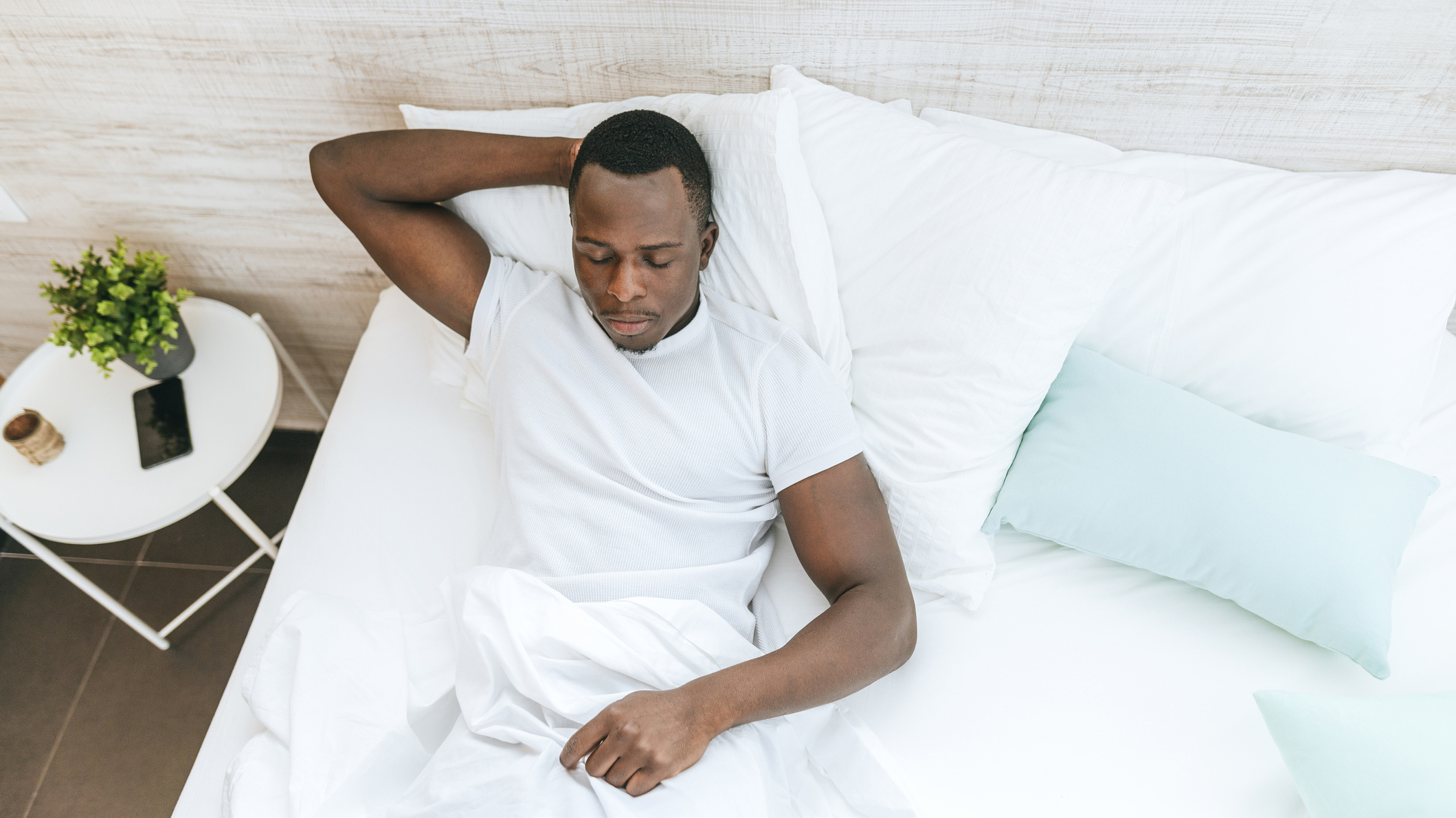How often should you change your mattress?
Changing your mattress is an important thing for your sleep and overall health. This is how often to do it, and how.

If you’re looking to update your sleeping setup, you’ve likely considered how often you should change your mattress. The simple answer is that most studies and sleep experts recommend that you should replace your mattress every seven to ten years. The more complicated answer is… well, it depends on the type you have and what it’s made from. Many of the best mattresses in 2021 offer 20 year warranties, which indicates that they have confidence that you won’t need to replace them for double the recommended time.
Today’s premium mattresses are certainly capable of lasting up to 20 years, and retaining their ability to give you a good night’s sleep. Amerisleep, Airweave, and Saatva all offer 15-25 year warranties on their mattresses. If you keep them well maintained, cleaned, and free of things like bed bugs and bodily fluids, then they have the potential to last for a couple of decades. You will pay more for the premium mattresses upfront, but you’ll often find Saatva mattress deals that can save you money on these premium models, all year round.
If you’re not buying a premium mattress made of durable, anti-allergen materials, the lifespan decreases significantly. Springs lose rigidity, any foam topping will wear down and get damaged by dust mites and bacteria, and your mattress will generally feel lumpy and get noisy. Sure, you could offset the decline by adding any of the best bed toppers, but this will only buy you an extra year or two before you need a replacement.
Buying cheaper mattresses doesn’t mean compromising on quality, even if you’re looking at a slightly lower lifespan. Pick up a good Purple mattress deal or Casper mattress deal, for example, and you can get an excellent mattress for half the price of the premium brands… so half the replacement time really isn’t an issue.
As a rough indicator, these are the average lifespans for different types of mattresses:
- Innerspring: 5-10 years
- Hybrid mattress: 8-10 years
- Memory foam: 8-15 years
- Waterbed: 5-10 years
- Latex: varies, up to 20 years
It’s safe to assume that if your current mattress is showing obvious signs of wear and tear, and is uncomfortable when you lie on it, then it needs to be replaced. If your mattress is still comfortable and properly supportive of your body, but it’s covered in surface stains, you could help it last a little longer by learning how to clean your mattress properly.

Does your age factor into how often should you change your mattress?
According to the Better Sleep Council, the average mattress should be replaced every seven years. Apart from how the mattress might degrade over time, this timeframe is also suggested because our bodies change as we get older and our sleep needs change too. So the perfect mattress for us seven years ago may feel a lot different now. The truth is, each of us needs more in-bed support and comfort as we get older, so it makes sense that our mattress requirements also evolve.
Sign up to receive the latest news, reviews, buying guides and deals direct to your inbox
Again, there are exceptions to this rule and you may find that your current mattress is still up to the job, or that you have purchased a mattress designed to last far longer than the average lifespan. If not, and you have a feeling that your mattress just isn’t up to par any more, there are 5 signs that you need to replace your mattress.

Different mattress brands and average lifespan
If you can find them, read the care guidelines for your existing mattress as they may state an average or expected lifespan based on proper care, cleaning and use - that means positioning the mattress on a proper bed base and not leaving it on the floor. As mentioned above, different mattress brands state different average lifespans for their mattresses, so let’s look at some of the more popular brands now…
Purple
These are designed to last for 10-20 years, according to Purple, and comes with a 10-year full replacement cost warranty.
Saatva
Saatva mattress states that its mattress will last 10-15 years with normal usage, and providing you care for the mattress according to Saatva's guidelines. You can often find these beds on sale among the best Saatva mattress discounts too.
Leesa
Leesa mattresses come with a 10-year full replacement warranty, which should give you an indication of what to expect if you care for the mattress and clean it as advised.
Nectar
Nectar memory foam mattresses are covered by the brand’s Forever Warranty, which means that for the first ten years, Nectar will replace the mattress at no cost to you if the mattress is ‘defective in workmanship or materials.’
Casper
Casper mattresses are also covered by the brand’s 10-year limited warranty, providing you use the mattress on a proper bed base.
How to protect your mattress
- 1. Check the manufacturers label for care advice before cleaning.
- 2. Buy a mattress protector and wash it every two months to reduce bacteria and other allergens.
- 3. Unless the manufacturer states otherwise, most mattresses should be flipped every 3-6 months to help them maintain shape and to wear more evenly.
If you feel as though your mattress needs replacing, you have plenty of choice available to you when buying online. Many of the top mattress in a box companies offer trial periods on their mattresses, ranging from 30 nights to a whopping 365 night trial.
To kick-start your search for a new mattress, take a look at our round-up of today’s best prices on some of our favorite mattresses for home delivery below. You could also read up on how to choose a mattress for your preferred sleep position.
Claire is Health and Wellness Editor at Top Ten Reviews and covers all aspects of health, wellbeing and personal care. With over 17 years' experience as a qualified journalist, writer and editor, Claire has worked across some of Future's most prestigious, market-leading brands. Due to past struggles with insomnia, she is particularly passionate about the role quality sleep plays in our physical and mental health, and loves helping readers to sleep better. Claire is always keen to hear from brands regarding products and services that can help readers feel healthy, happy and empowered.

